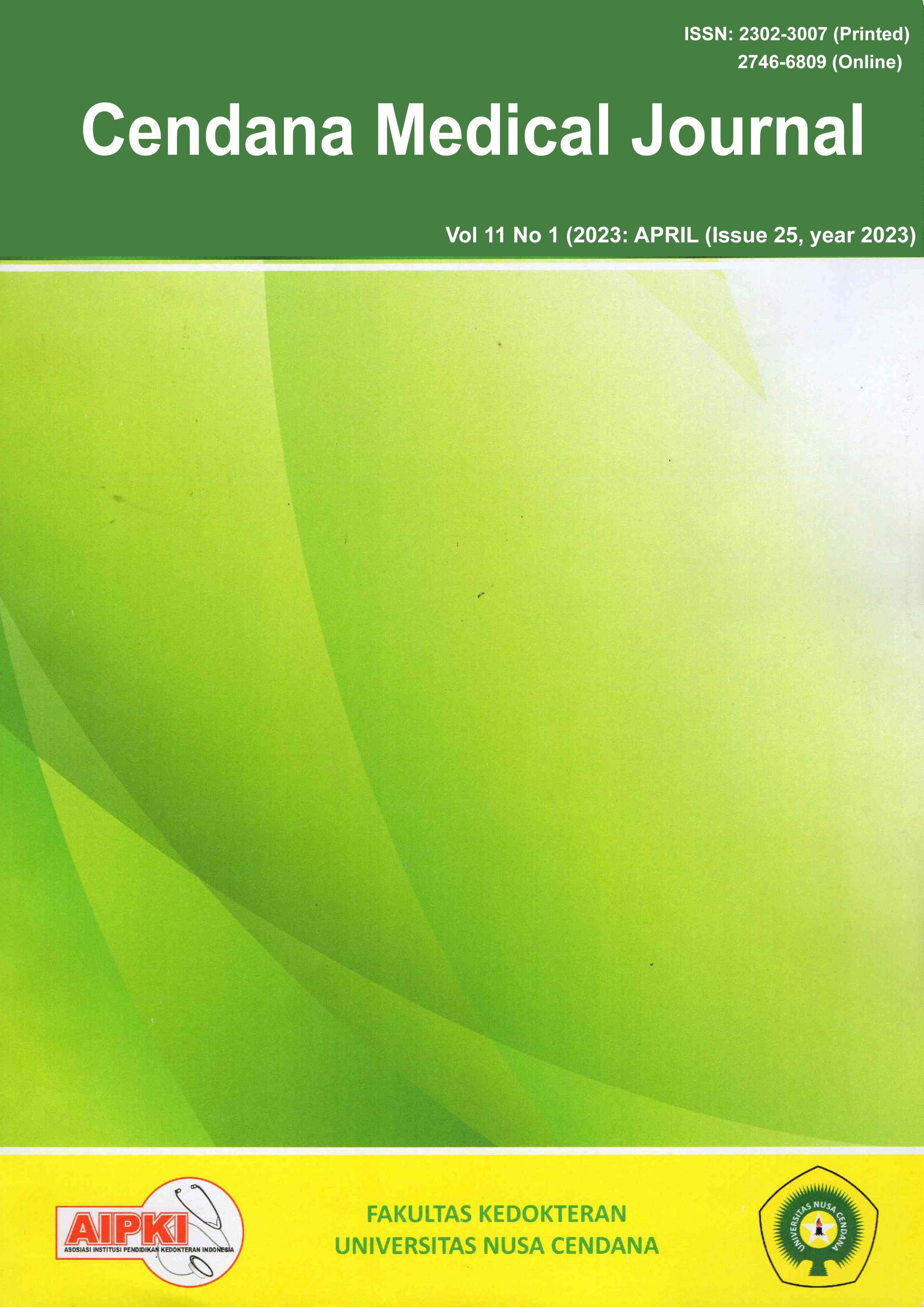OVERVIEW OF MEDICAL SOLID WASTE MANAGEMENT IN THE WAIBAKUL REGIONAL PUBLIC HOSPITAL, CENTRAL SUMBA DISTRICT
Abstract
Hospitals are public service delivery organizations that have responsibility for every health service, including preventive, promotive, curative, and rehabilitative services. Hospital activities last 24 hours and involve various activities of many people so that they have the potential to produce large amounts of waste. This research aims to determine the Management of Medical Solid Waste Management at the Waibakul Regional General Hospital, Central Sumba Regency in 2023. This type of research is descriptive research with a survey method. The sample size is 10 people who are directly responsible for the process of managing medical solid waste in hospitals. The variables studied are management people/staff, funds, facilities, and infrastructure as well as medical solid waste management methods. The results of the research show that the existing medical solid waste management people are not sufficient in terms of quality, namely inadequate educational status, lack of knowledge/experience lack of training, and insufficient in terms of quantity, namely insufficient incinerator personnel. The source of funds (money) in managing medical solid waste in hospitals is considered insufficient so the procurement of facilities and infrastructure to support medical solid waste processing, operational costs, and costs for repairing infrastructure are still insufficient so that the management of medical solid waste in hospitals is less than optimal. Existing facilities and infrastructure (machines) cannot yet adapt to all the waste produced by hospitals and do not meet the requirements. The method for managing medical solid waste in hospitals has gone through a waste management process by the standards of the Republic of Indonesia Minister of Health Regulation No. 7 of 2019 concerning Hospital Environmental Health which starts from the process of sorting, containing, transporting, storing, and processing or destroying medical solid waste.
Downloads
References
Depkes RI. Pedoman Sanitasi Rumah Sakit di Indonesia. Jakarta: Bakti Husada; 2006.
WHO. Dasar-Dasar Regulasi Manajemen Limbah Medis, Lingkungan Dan Kesehatan Limbah Medis. Indira Gandhi: National Open University; 2010.
Depkes RI. Profil Kesehatan Indonesia. Jakarta: Kementrian Kesehatan RI; 2011.
Rosihan A. Pengelolaan Limbah Medis Pelayanan Kesehatan. Jakarta; 2018.
Kementerian RI. Undang-Undang RI Nomor 32 Tahun 2009 tentang Perlindungan dan Pengelolaan Lingkungan Hidup. Jakarta; 2009.
Sasongko dan Parulian. Anggaran. Jakarta: Salemba Empat; 2015.
Pertiwi V. Evaluasi pengelolaan limbah Bahan Berbahaya dan Beracun (B3) di Rumah Sakit Roemani Muhammadiyah Semarang. J Kesehat Masy. 2017;
Kementerian RI. Undang-Undang RI Nomor 44 Tahun 2009 tentang Rumah Sakit. Jakarta; 2009.
Copyright (c) 2023 Cendana Medical Journal

This work is licensed under a Creative Commons Attribution-NonCommercial-NoDerivatives 4.0 International License.
Copyright Notice

This work is licensed under a Creative Commons Attribution 4.0 International License.

 Ananda Florenza Rambu Lika Enga(1*)
Ananda Florenza Rambu Lika Enga(1*)












